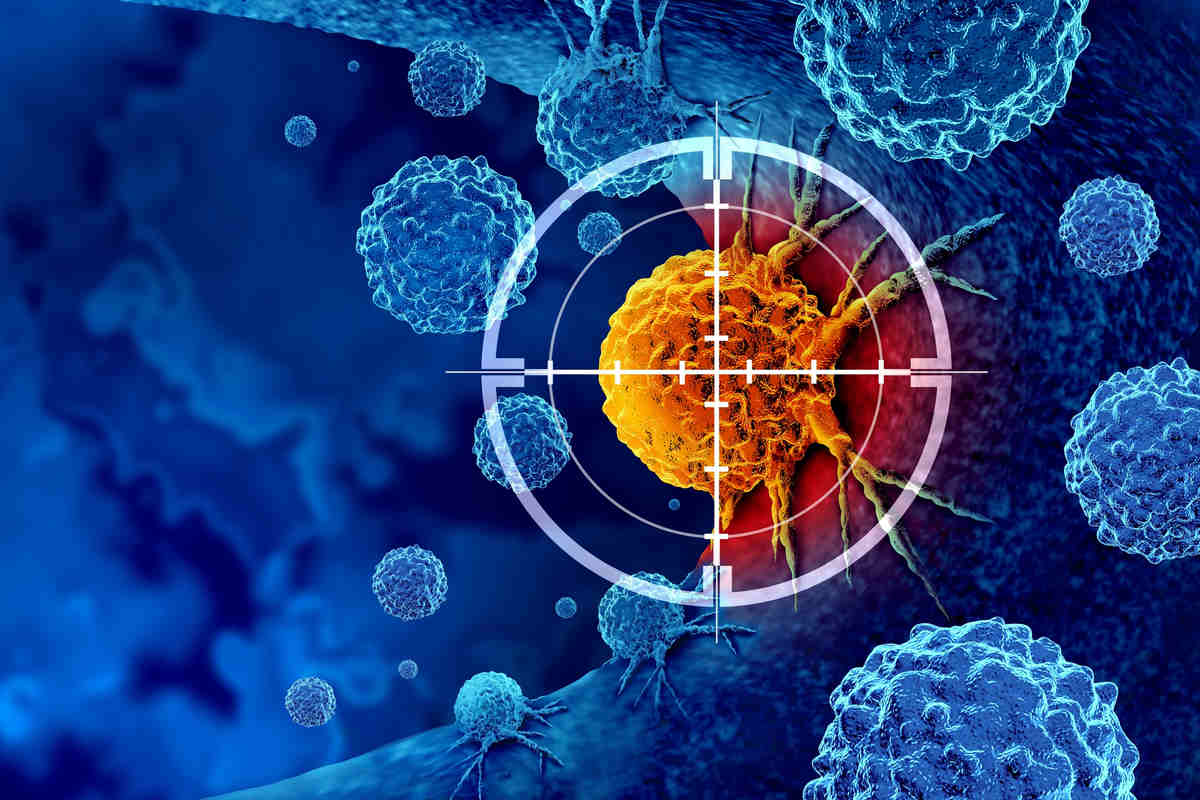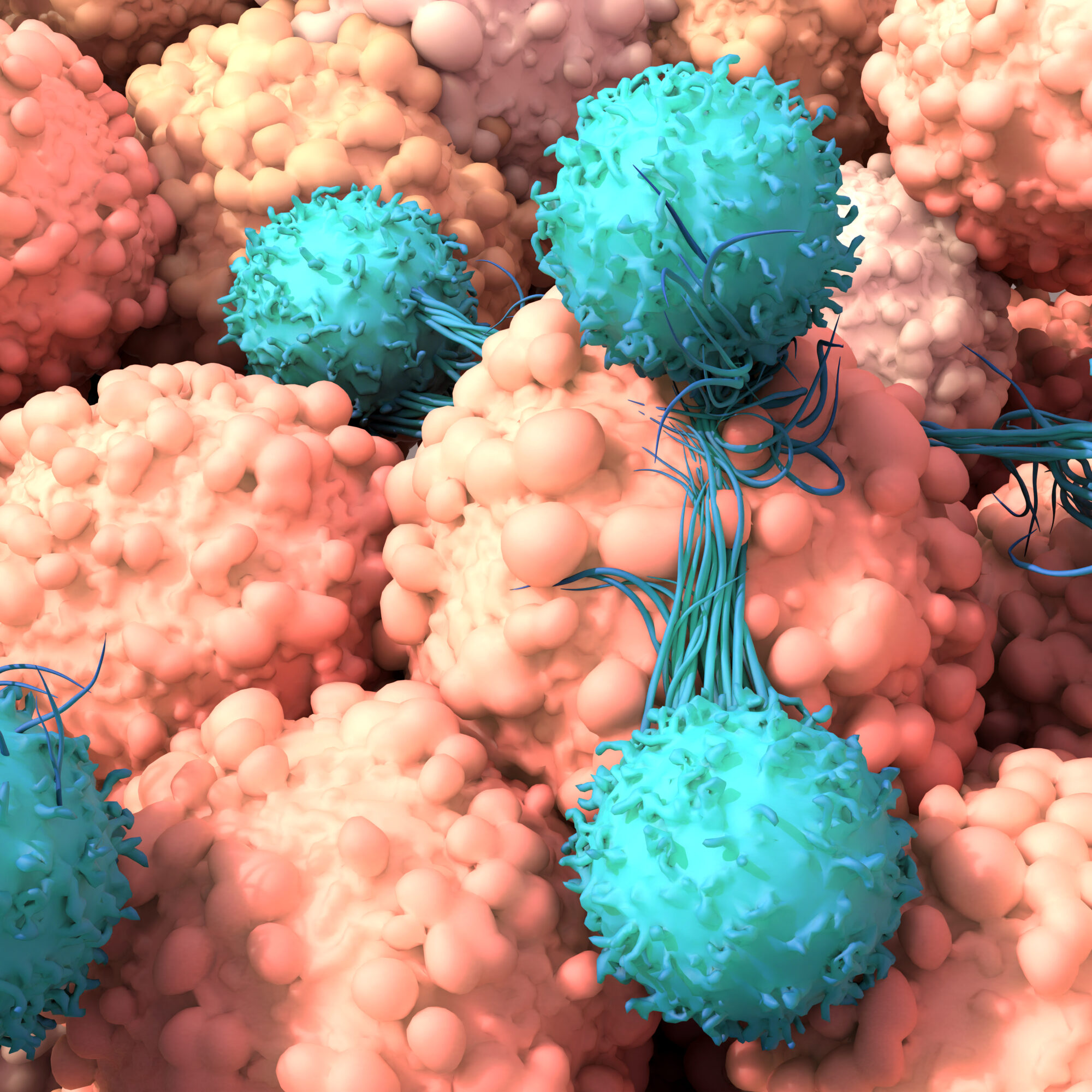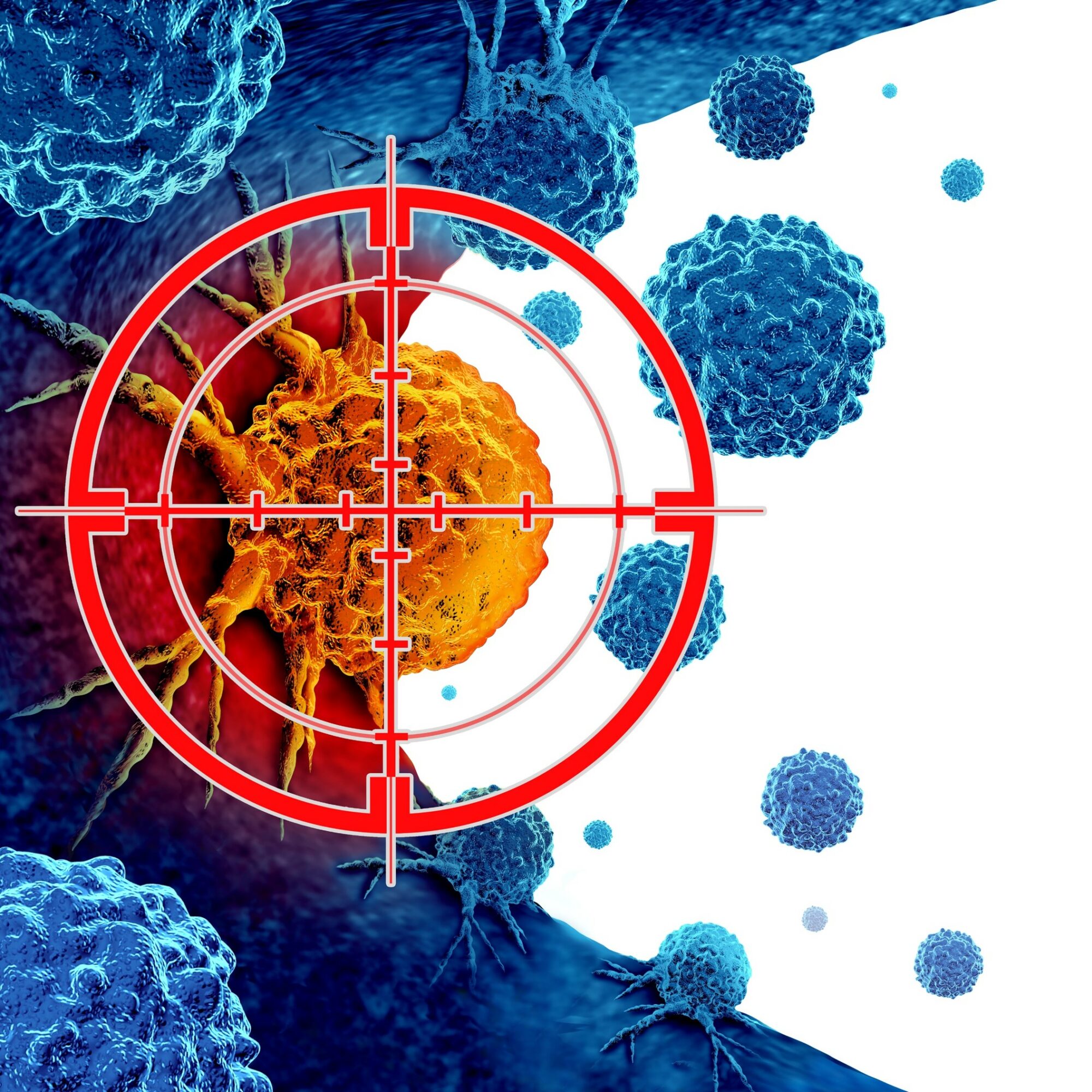The altered behavior of cancer cells compared to physiological healthy cells is also caused by overexpression of proteins, which promote for example cell proliferation, survival and migration. Some of these proteins can easily be targeted and inhibited, while other proteins are not easily accessible by small molecules or antibodies and are therefore called undruggable. However, the development of proteolysis-targeting chimeras (PROTACs) could be a possible solution to also target these undruggable proteins and fight cancers caused by the overexpression of these proteins. In this article, Alcimed explores the benefits of PROTACs in the treatment of cancer, and the challenges still to be overcome to make this new treatment a reality.
What are PROTACs?
PROTACs are bivalent molecules, which promote the degradation of the protein of interest, usually an aberrant overexpressed protein in the cancer cell, by the cancer cell’s own protein degradation system.
The degradation system, which is addressed by PROTACs relies on E3 ligases and the proteosome. Here, proteins are marked with ubiquitin by E3 ligases for their degradation via the proteosome. The proteosome recognizes the proteins, which should be degraded and digests them into amino acids.
Researchers found a way to hijack this natural degradation system for the targeted degradation of specific proteins by chemically induced proximity between the protein of interest and an E3 ligase. PROTAC molecules contain two warheads targeting a protein of interest and an E3 ligase and a linker, binding both warheads together. The binding of the two warheads to their respective targets forces a proximity between the protein of interest and the E3 ligase.
Thus, the E3 ligase is able to ubiquitinate the protein of interest and marks them by this for degradation by the proteosome. Different warheads are published nowadays for various different targets and E3 ligases and some of the generated PROTACs are already tested in clinical phases with promising results.
What are the advantages of PROTACs in cancer treatment compared to small molecule inhibitors?
In addition to the ability to target undruggable proteins, PROTACs show further advantages over small molecule inhibitors or antibody-based therapeutics in cancer therapy.
A lower dose of administration needed
PROTACs function in an event-driven mechanism, meaning that they dissociate from the complex formed with the protein of interest and the E3 ligase when the target protein is degraded. Thus, PROTACs could continue their degradation functionality and target multiple target protein equilibrates. Hence, PROTACs could be administered in smaller dosages than small molecule inhibitors, which usually keep bound to their target protein for inhibiting their function.
A better elimination of target proteins
PROTACs lead to the degradation of the protein of interest, which is cleared from the cells and by this the accumulation of target proteins is eliminated. The use of small molecule inhibitors blocks the protein of interest and might stabilize the protein structure, which extends their half-life, additionally longer inhibition of protein function could trigger further and increased expression of the protein of interest, which is both avoided by the special function of PROTACs.
An improved selectivity and specificity
The degradation of the protein of interest is dependent on the formation of a stable complex of the protein of interest, PROTAC and the E3 ligase relying on an appropriate interaction of the E3 ligase and the protein of interest. Since, the molecular structure of protein of interest and E3 ligase is depended for PROTAC function, the selectivity and specificity of PROTACs is increased compared to small molecules.
What are the challenges in PROTACs development for targeted cancer therapy?
However, not only advantages of PROTACs are reported, but the development of PROTACs also underlies certain challenges.
- Implementing molecular enhancements: PROTACs have by nature a higher molecular weight, which lowers cell permeability, solubility and decreases oral bioavailability. Additionally, PROTACs are more open to metabolic clearance, since they consist of more metabolic sites. Hence, pharmaceutical properties of PROTACs need further improvement.
- Overcoming resistance to PROTAC treatment: The function of PROTACs relies on the expression of their specific E3 ligase. The reduced expression of these ligases in certain tumors could cause resistance to the PROTAC treatment.
- Minimizing off-target effects: PROTAC treatment could lead to off-target effects. The degradation and full clearance of the protein of interest could cause negative effects on additional proteins in the cell environment.
- Expanding ligase diversity for enhanced specificity: So far, only a small minority of E3 ligases is employed for PROTAC function and warheads for the protein of interest are often based on known inhibitors for these proteins. Thus, the advantage of PROTACs to target undruggable proteins is not yet fully employed and warhead discovery for undruggable proteins needs to be impelled. Additionally, over 600 human E3 ligases are known and theoretically available for PROTAC development, however the vast majority of generated PROTACs relies on the two E3 ligases, Cereblon and Van-Hippel-Lindau. E3 ligases display a very heterogenous expression pattern in tissue and tumor type, as well as cellular compartment and cell state. Thus, generating PROTACs recruiting E3 ligases with a specific expression profile increases the specificity of PROTACs and might avoid drug resistance.
PROTACs in clinical trials: current status and promising results
Despite the still open challenges, several PROTACs entered the clinic in the last years and are currently tested in clinical trials. So far, no PROTAC based cancer therapy is approved by the authorities and PROTAC ARV-471 from Arvinas against the estrogen receptor for the treatment of metastatic breast cancer is the furthest developed PROTAC in clinical phase 3. Results from clinical phase 2 trials showed a median degradation rate of estrogen receptor of around 69% leading to promising clinical benefit rate of 38% and median progression free survival of 3.5%, which is higher (5.5%) in patients diagnosed with breast cancer with mutated estrogen receptor gene.
Arvinas also shared positive clinical results for their PROTACs ARV-110, degrading androgen receptor and is currently tested in clinical phase 2 for the treatment of castration resistant prostate cancer.
Other companies as Kymera and Nurix shared clinical results for their degraders (Kymera: KT333, KT413; Nurix: NX2127 and NX5948) tested in different cancer type therapies. Both companies shared claim successful degradation of the respective protein of interest and positive pharmacokinetics and good tolerance. Based on the positive results of clinical phase 1, Nurix is planning together with Sanofi a phase 2 clinical trial for NX2127.
PROTACs are a promising new molecule type for the treatment of cancers. They show advantages over traditional small molecule inhibitors such as event-driven mechanism, elimination of target protein accumulation and improved selectivity and specificity. However, certain challenges exist like their pharmaceutical properties, as well as drug resistance and off-target effects. In addition, the full potential of PROTACs is not yet fully exploited. Further development of warheads for new, undruggable oncoproteins and e.g. tumor specific E3 ligases are basis for the development of tumor specific PROTACs to tackle undruggable oncoproteins. In addition to PROTACs other degraders are in development, which are also relying on the own cancer cell’s degradation system, such as molecular glues as monovalent degraders or LYTACs and AUTACs as bivalent degraders, which employ the cell’s lysosomal degradation system or autophagy system, respectively.
Alcimed is closely following the rapid developments in the field of novel cancer treatments and is ready to support you on these topics! Don’t hesitate to contact our team.
About the authors,
Volker, Great Explorer Oncology in the Healthcare Alcimed’s team in Germany
Frederike, Consultant in the Healthcare Alcimed’s team in Germany



